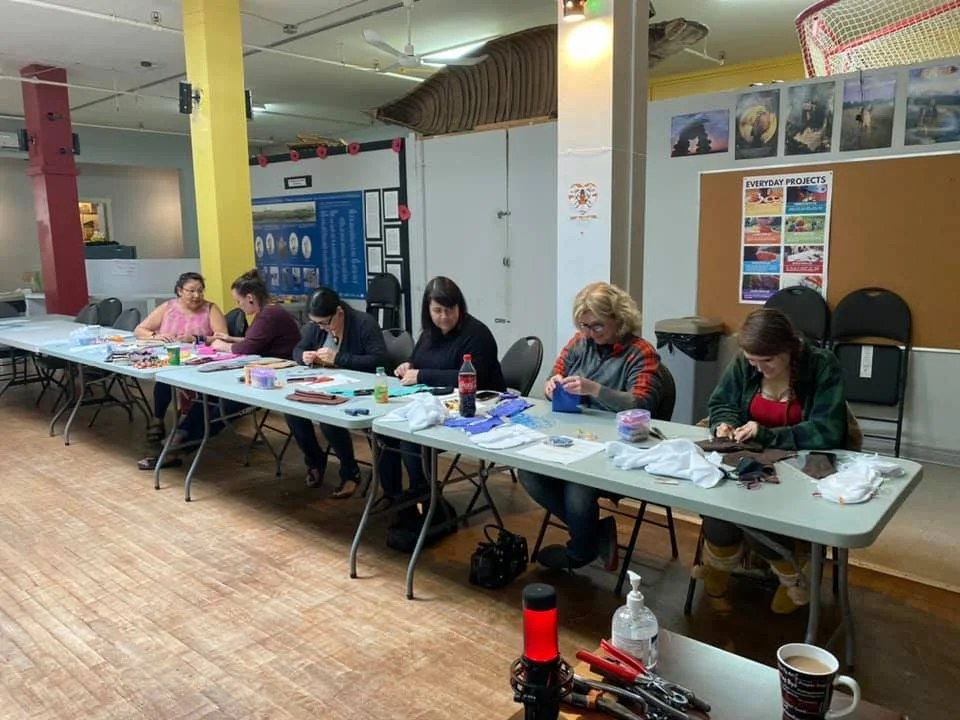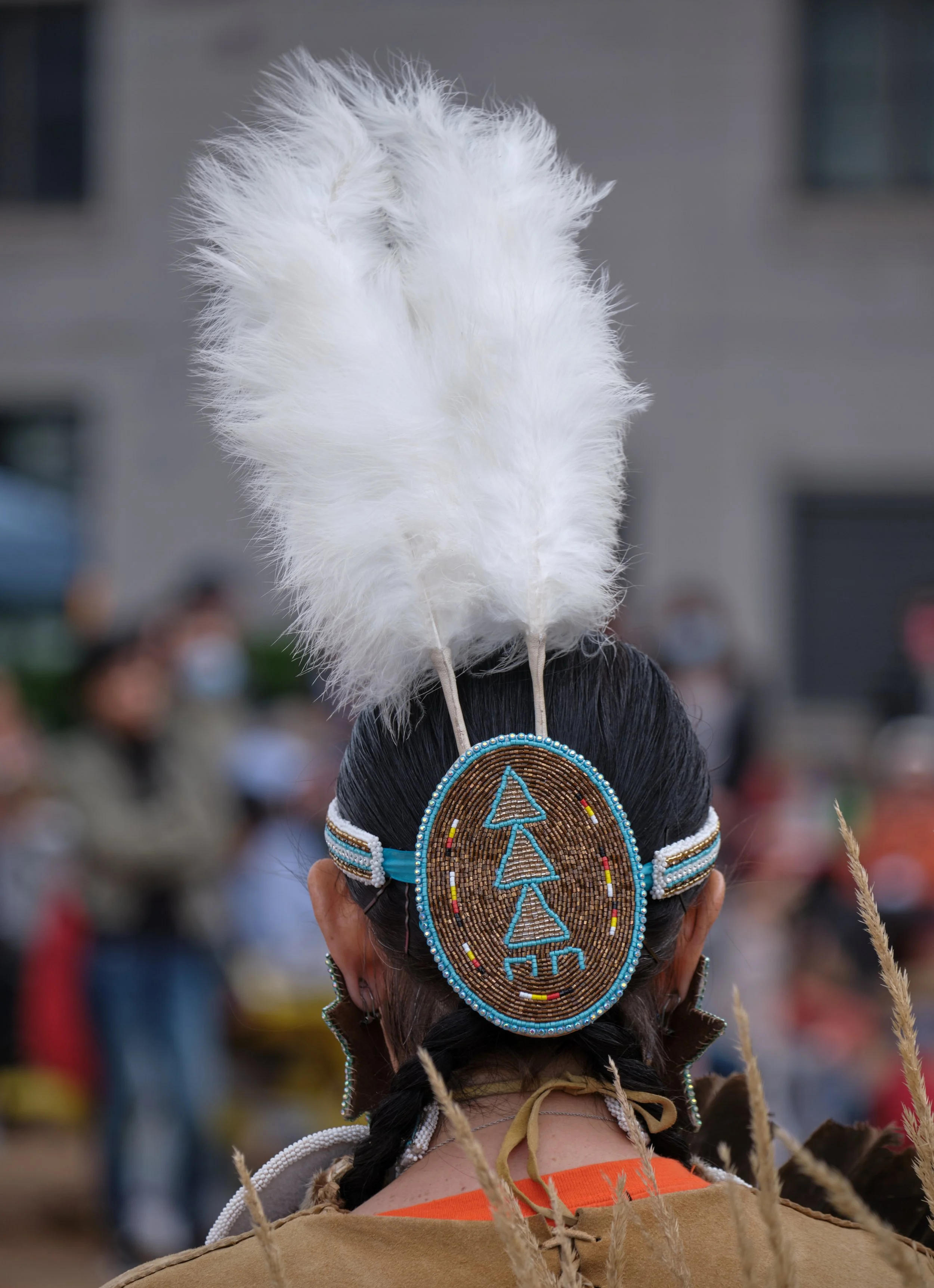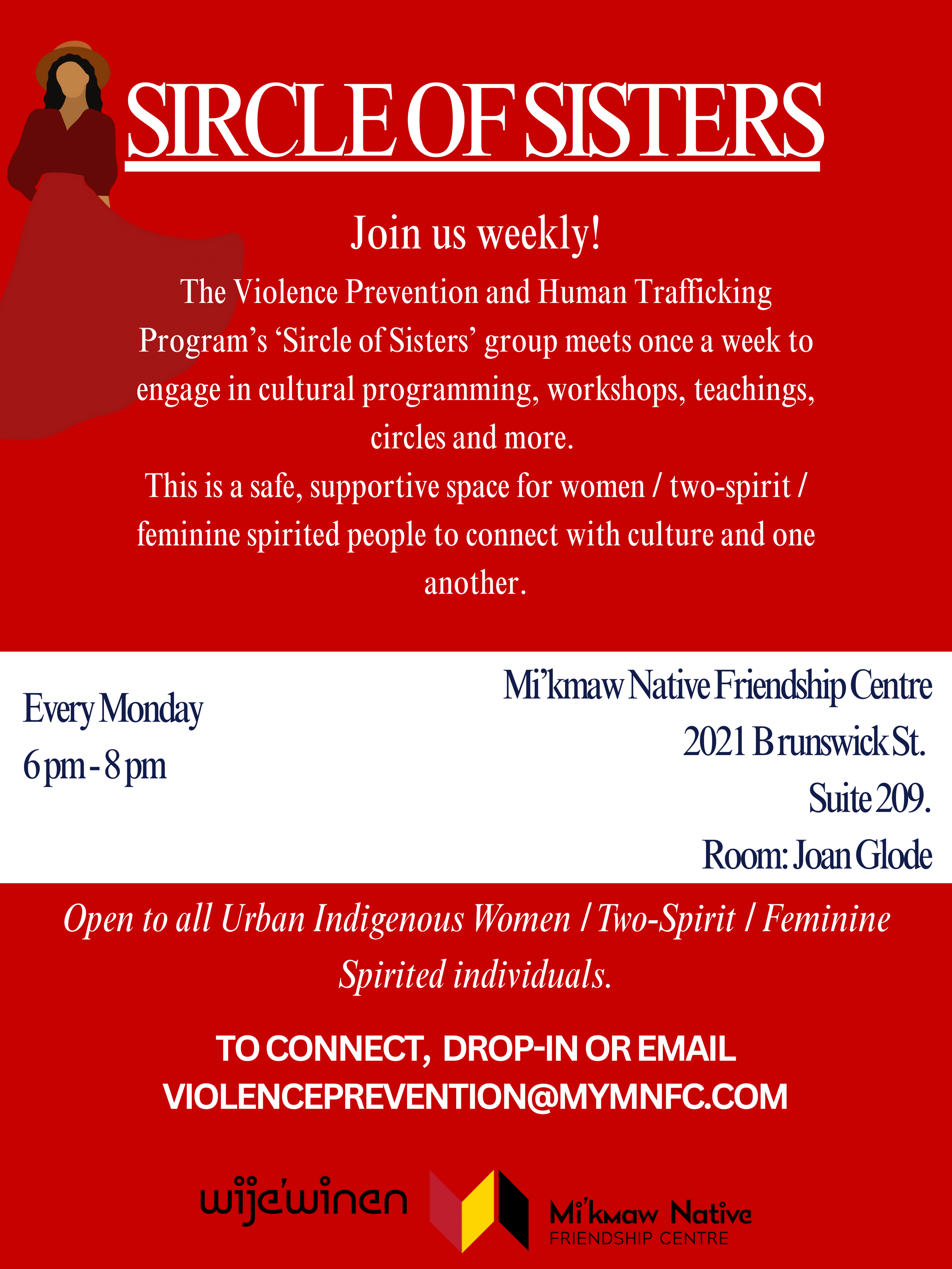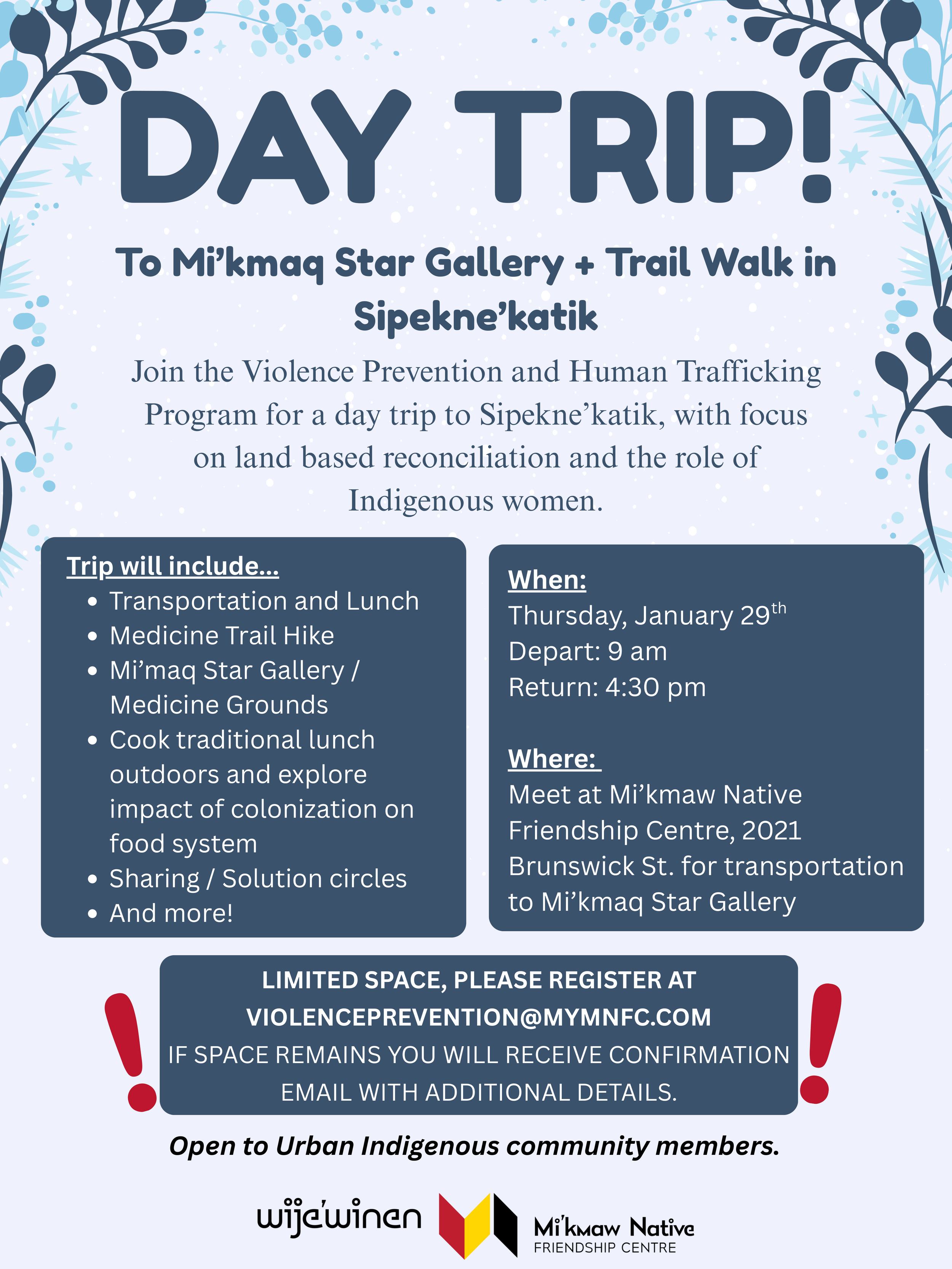
MMIW&G2S
No More Stolen Sisters
Department of Violence Prevention and Human Trafficking
Overview
The Violence Prevention & Human Trafficking (VPHT) is a helpful and resourceful program for both Indigenous and non-Indigenous people in the Kjipuktuk (Halifax) area. It mainly supports women affected by violence, trafficking, and exploitation. Additionally, the VPHT connects community members to resources and support from the Friendship Center and other organizations.
The Violence Prevention & Human Trafficking holistic practices and trauma informed approach integrates MNFC mission and core values is to improve the lives of urban Indigenous people through cultural appropriate programming. The importance of cultural practices with the Seven Grandfather teachings is to meet the diverse needs, traditions and cultures of Mi’kmaw and Indigenous community members we support.
What we do…
Offer cultural support and advocacy.
Work with outside groups to promote MNFC programs.
Make sure services are culturally appropriate and accessible.
Build positive relationships with government, officials, and the community.
Raise awareness for Missing and Murdered Indigenous Women and Girls, including vigils for families.
Hold meetings with MNFC program managers and other agencies to support clients.
Create a Circle of Support for Indigenous clients' unique needs.
Organize meetings and talks to educate others.
Help with community events and cultural presentations.
Contact us to learn more about our Violence Prevention & Human Trafficking program
Email: VIOLENCEPREVENTION@MYMNFC.COM
The Sircle of Sisters is open to all Indigenous women in HRM; who want to meet others, learn about their culture, and take part in ceremonies. It provides a safe and respectful space that empowers Indigenous women through sharing circles and self-care activities. The focus is on building healthy relationships and connecting with culture to help balance your medicine wheel.
The SOS group has been active since 2019 and has over 15 members. We've invited elders to lead ceremonies like the Water Bundle ceremony, sweat lodge, naming ceremony, and workshops on making ribbon skirts and bear grease for our members to join.
Contact us to learn more about Sircle of Sisters
sircleofsisters@gmail.com
No More Stolen Sisters
MMIWG2S: Understanding the Crisis and Supporting Change
MMIWG2S stands for Missing and Murdered Indigenous Women, Girls, and Two-Spirit individuals. This critical issue reflects a broader pattern of violence experienced by Indigenous communities across Canada. The statistics are staggering and highlight a systemic problem involving racism, discrimination, and neglect by societal structures.
The term encompasses the tragic realities facing Indigenous women and gender-diverse peoples who have gone missing or been murdered at alarmingly high rates compared to their non-Indigenous counterparts. These injustices are rooted in colonial histories and ongoing marginalisation.
To address these issues, it is vital to:
Raise Awareness: Engaging in conversations about MMIWG2S can help bring visibility to the crisis. Sharing stories, experiences, and statistics can educate others and foster a greater understanding of the cultural context and the urgency of the situation.
Support Indigenous Voices: It's essential to amplify Indigenous leaders and organizations that are working tirelessly to address violence against women and gender-diverse individuals. Supporting Indigenous-led initiatives ensures that responses are community-driven and culturally appropriate.
Advocate for Policy Changes: Engaging with policymakers to create and enforce laws that protect Indigenous women and Two-Spirit individuals can help to alleviate some of the systemic issues. Demanding accountability and transparency from government institutions is crucial.
Promote Healing and Support Services: Providing resources, both emotional and financial, to support survivors of violence and their families is a fundamental step towards healing. Cultural programming, counselling, and community support systems are integral to recovery.
Participate in Commemorative Events: Attending vigils, marches, and awareness campaigns in honour of the missing and murdered can foster solidarity within communities and show support for those affected by this crisis.
The MMIWG2S issue is not just an Indigenous problem; it is a Canadian crisis that requires collective action. By working together, we can contribute to meaningful change and advocate for a future where all individuals feel safe, respected, and valued.
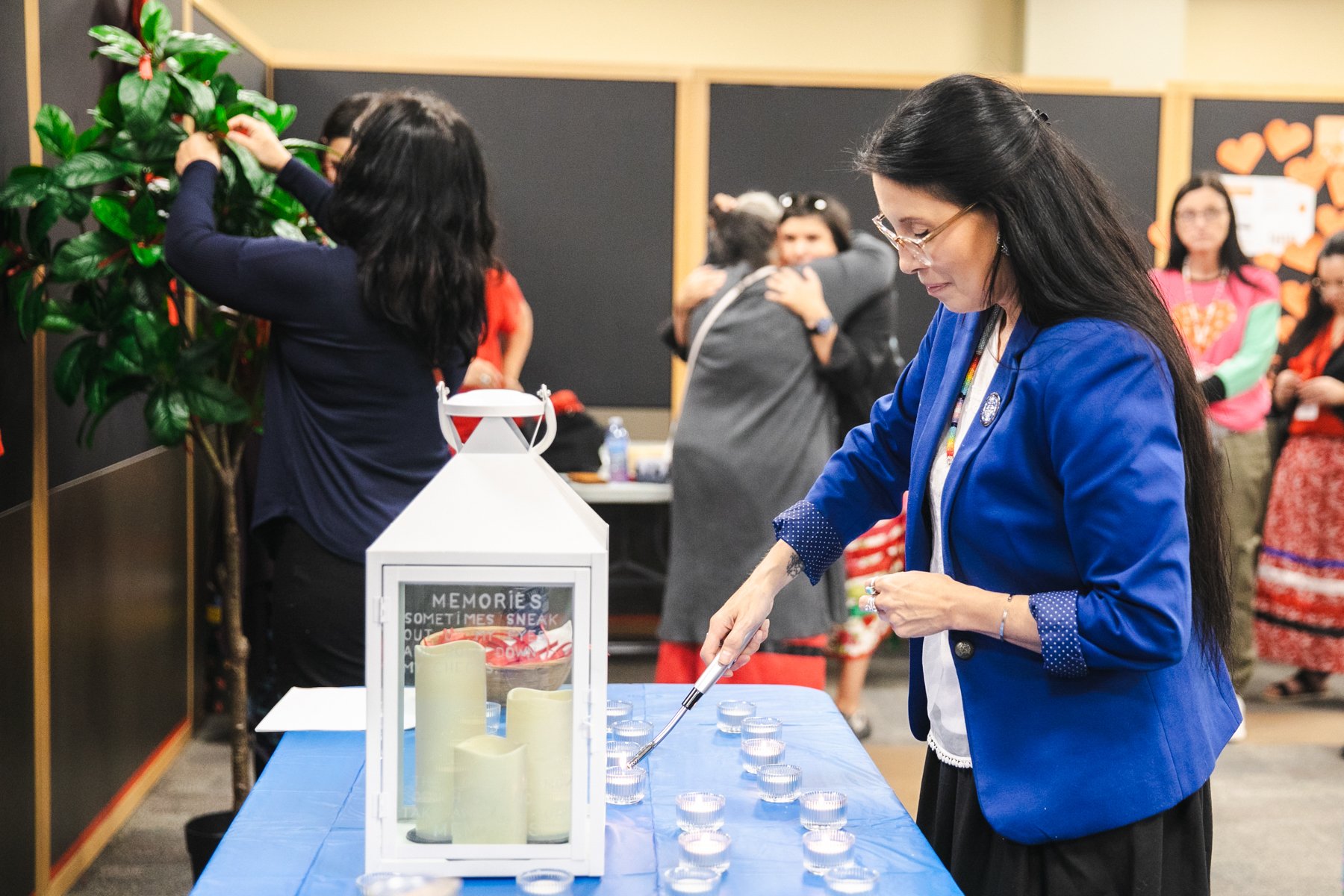
A woman in a blue blazer lights small candles on a table during a memorial or remembrance event. Other people in the background are hugging and socializing.
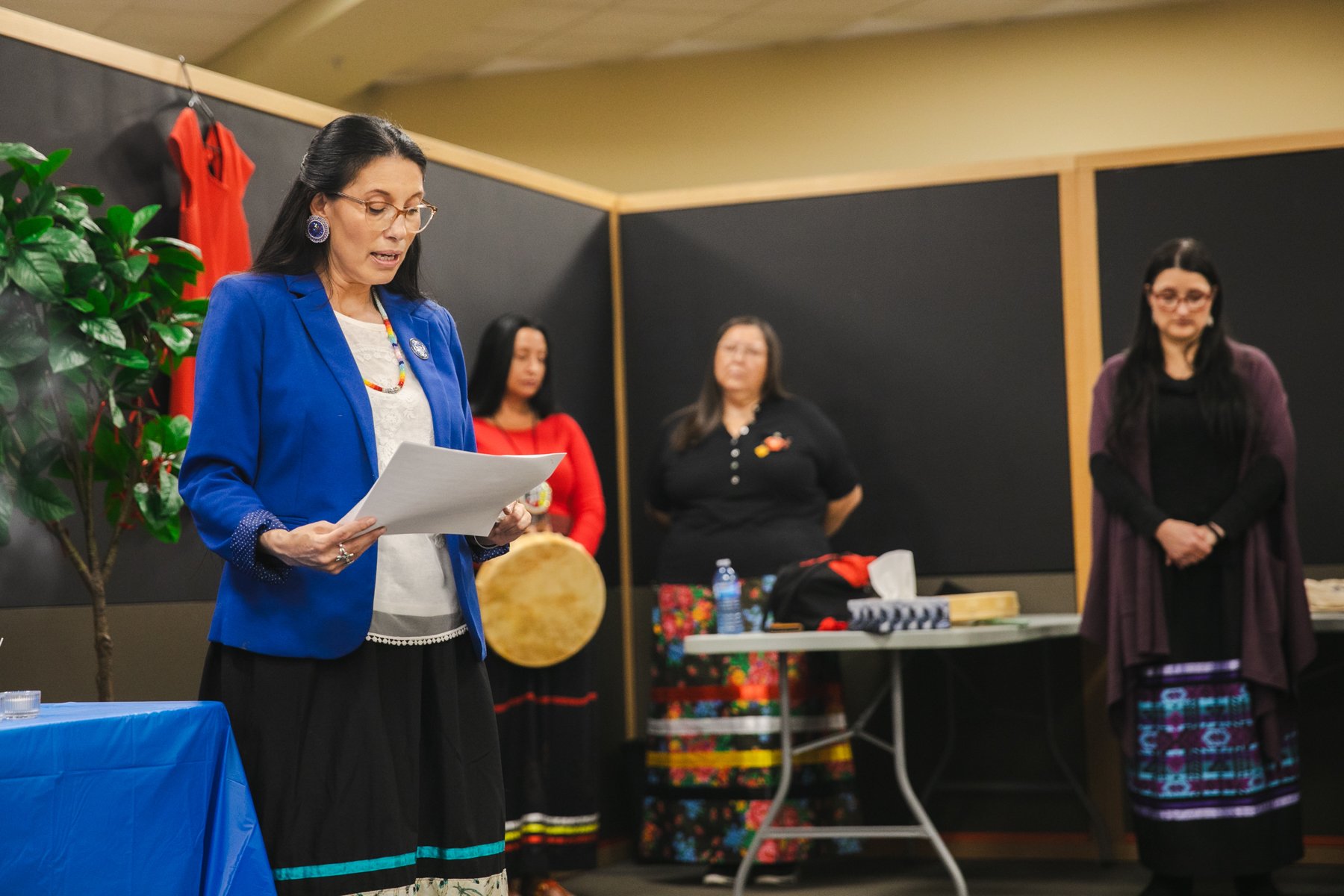
A woman in a blue blazer and glasses reads from a paper while four women in traditional Native American attire, including colorful skirts and accessories, stand behind her in a room with black walls and a table with various items.
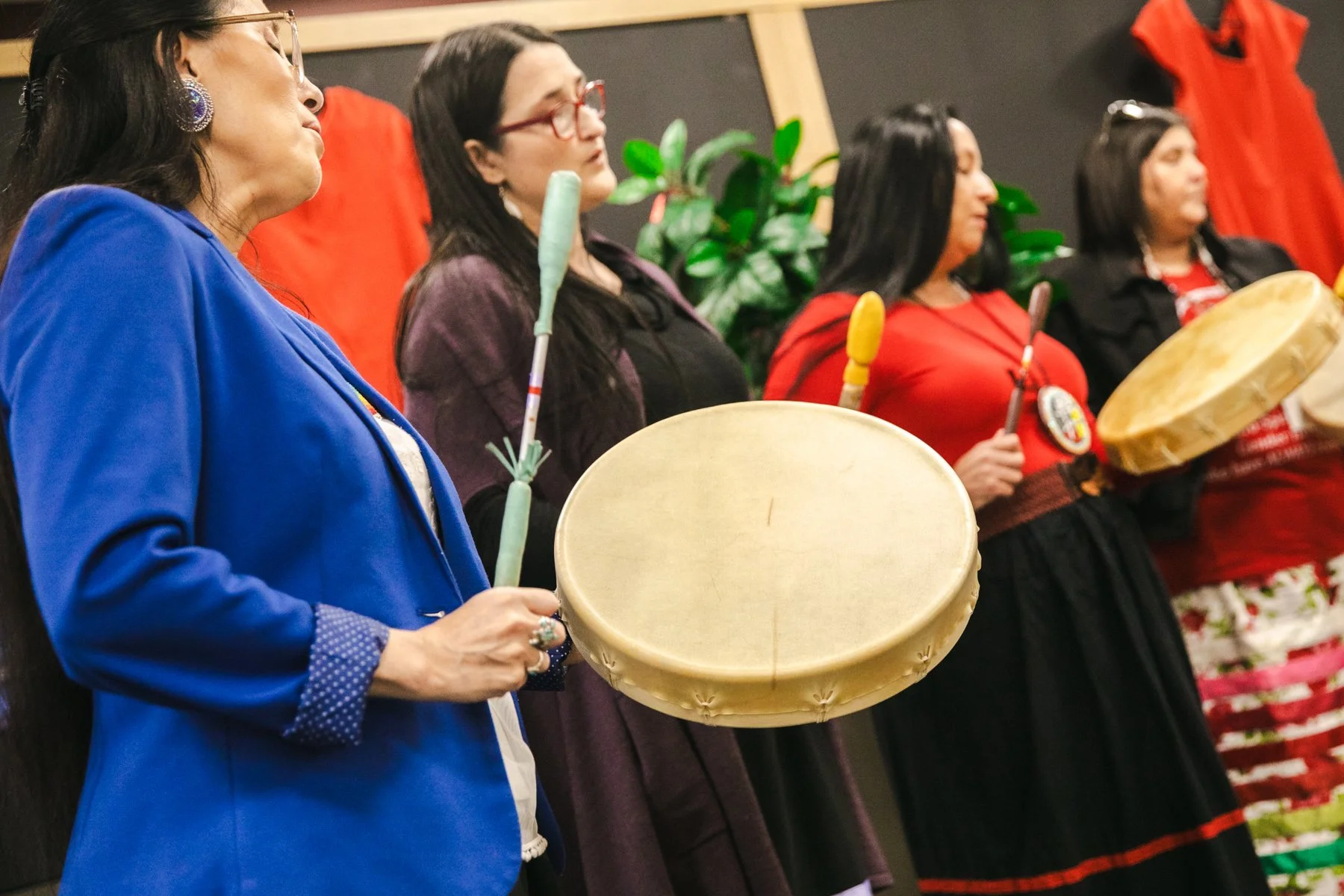
Four women standing in a row playing hand drums, with red and green decorations in the background.
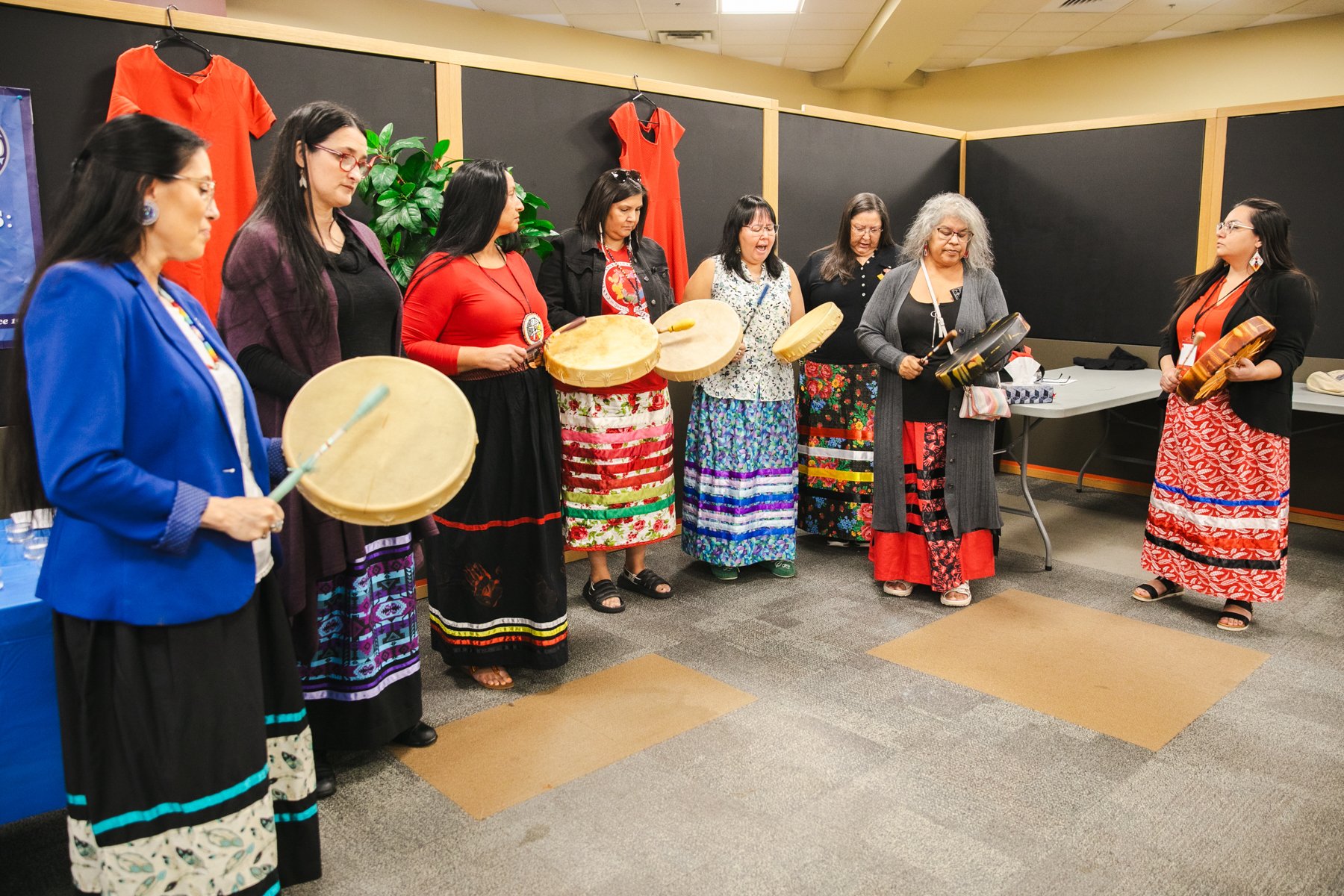
Group of women dressed in colorful traditional clothing playing hand drums in a circle at an indoor event.
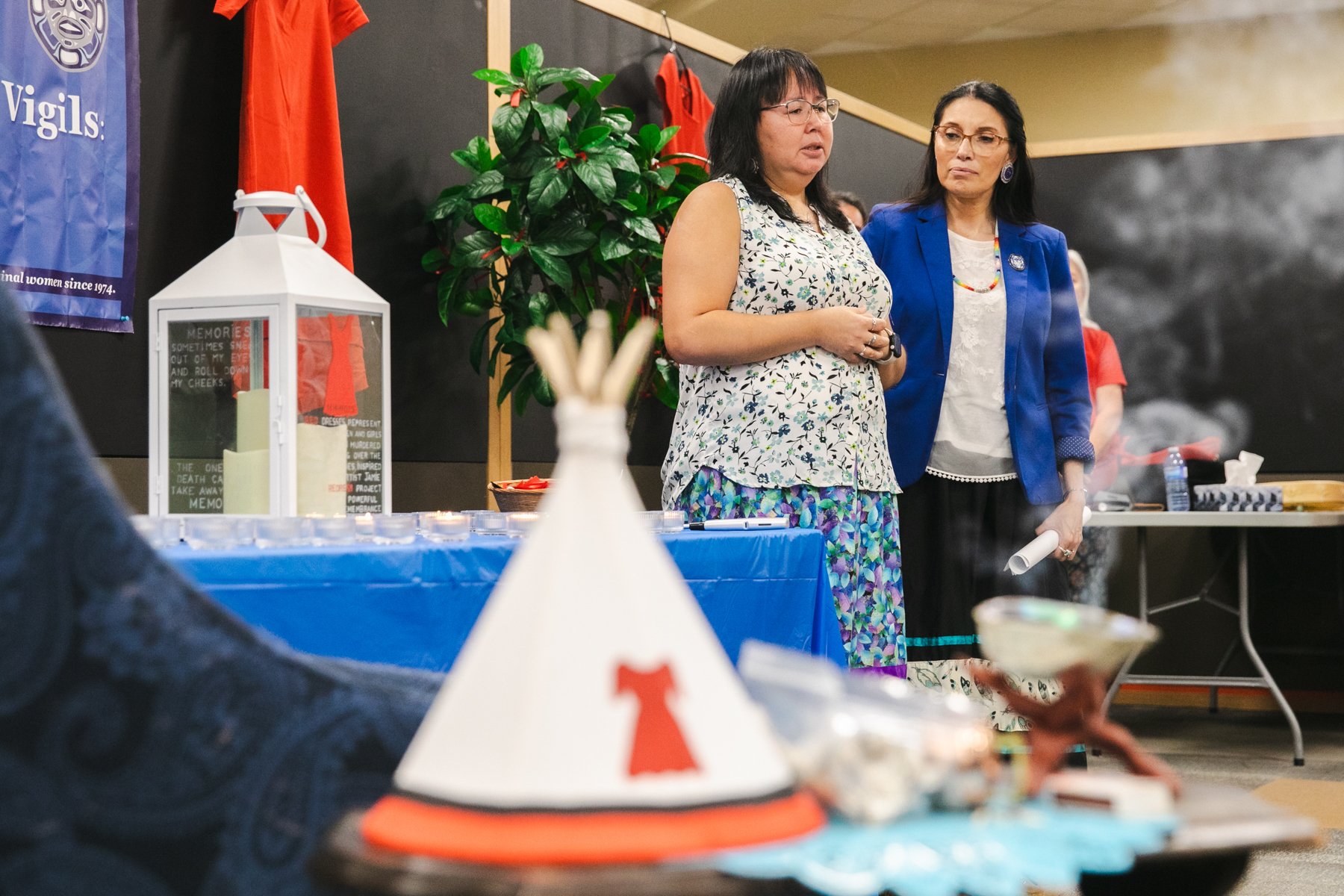
Two women speak at a gathering, with a table displaying small candles, a lantern with memorial messages, and a paper hat with a red ribbon in the foreground.

Four women standing together at a gathering, wearing colorful clothing with some in patriotic or festive attire, with food and decorations on a table nearby.

An indoor event with three women standing behind a table, one of whom is in the center wearing a red shirt and a necklace with Indigenous designs. The woman is forearm muscular and has long white hair. The woman to her right is wearing a yellow shirt with a necklace, and the woman on the far right is wearing a black shirt with colorful floral patterns on the skirt. Behind them are two large red shirts and a banner that reads "Vigils" with an Indigenous face symbol. The foreground has blurred objects on the table, including a white hat with a red design and some food items.
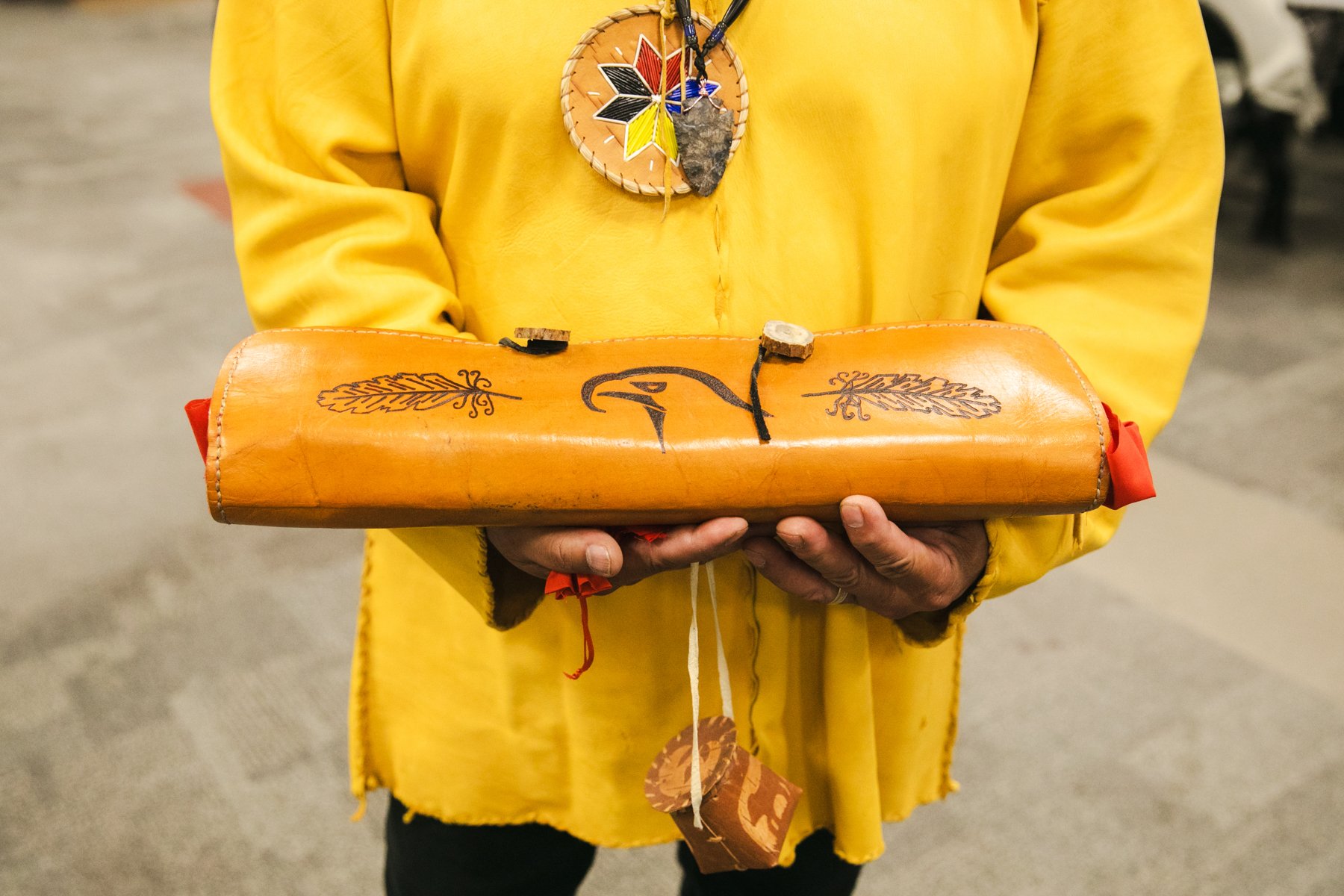
Person dressed in a yellow garment holding a wooden object decorated with black line drawings of leaves and a bird's head.
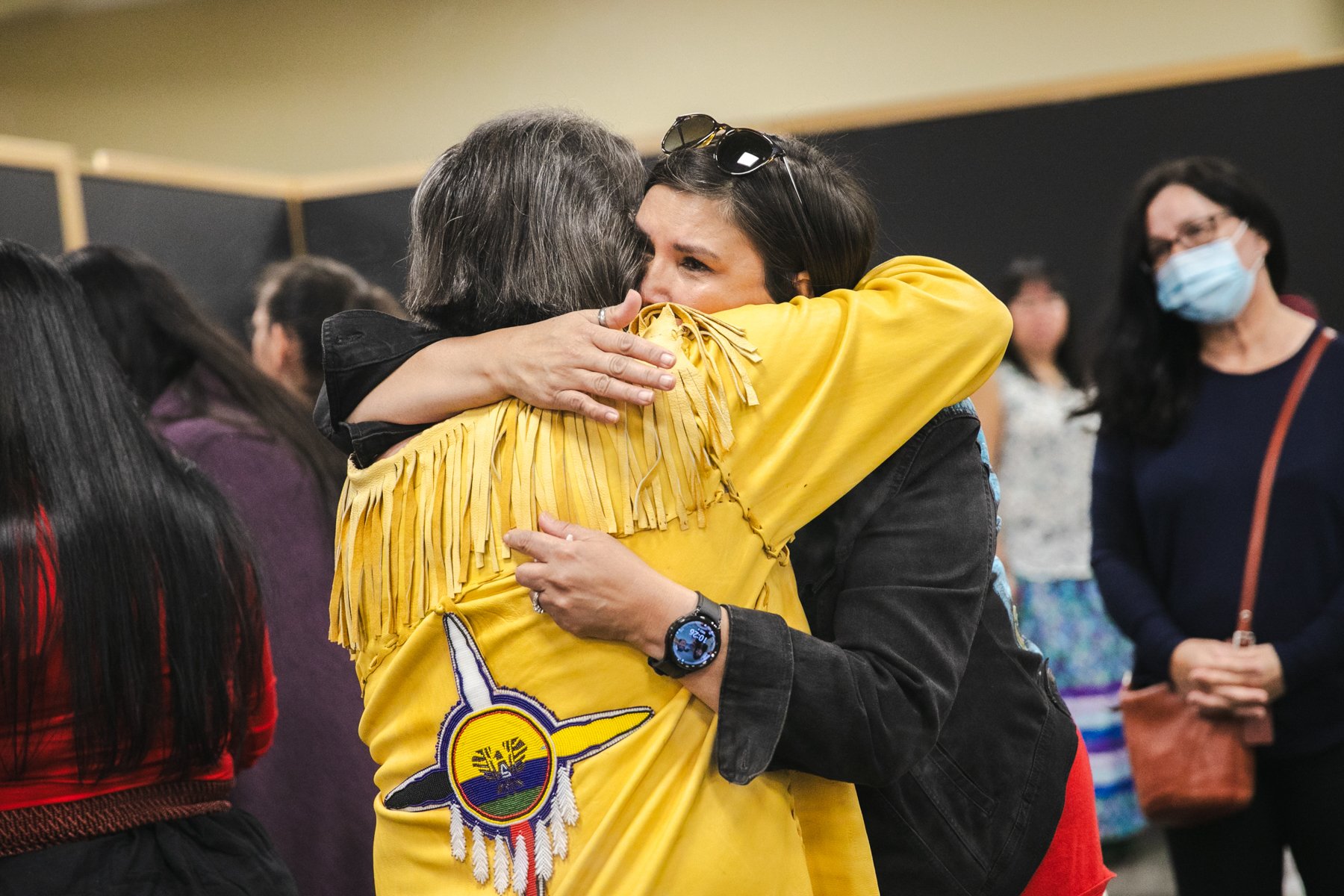
Two women hugging warmly in a crowded room, one wearing a yellow shirt with a colorful patch, and the other wearing a black jacket. In the background, other people are present, with one woman wearing a face mask.


